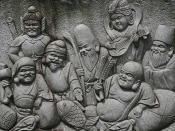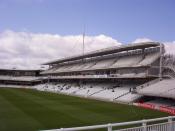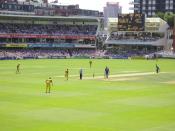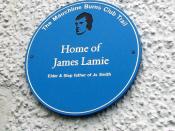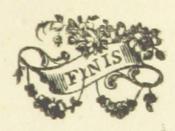v. 13 The merchants addressed in this verse were Jews who were involved in lucrative trade throughout the Mediterranean world. They are depicted as making careful PLANS for their businesses declaring; "Today or tomorrow we will go into such a city"ÃÂ etc.
v.14 There is nothing wrong with such planning in itself. However, the planners were ignoring 2 very important considerations. The first is that of the finiteness of human beings, which limits our knowledge; "Why you do not even know what will happen tomorrow"ÃÂ The second is the uncertainty of human life itself, which James likened to; "A mist that appears for a little while and then vanishes"ÃÂ v.15 A Christian should have a different attitude to those of the planners described in v. 13, and in making plans we as Christians should acknowledge our dependence on God and say; "If it is the Lord's will"ÃÂ GOD WILLING v.
16 James goes back to describe how these people actually acted, and stated that they boasted and bragged of which James states as evil.
v. 17 The concluding warning from James to the self-confident merchants, and that is also relevant to us as Christians today, is that; "Anyone, then, who knows the good he ought to do and doesn't do it, sins"ÃÂ PROVERBS 16:9 and 19:21 Wycliffe Bible Commentary of 5:1-6 v. 1 The rich addressed here are not Christians, but nonetheless, the warning is relevant to everyone, including Christians. James is consistent with NT teaching in attacking the rich not simply because they are rich, but because they have failed in their stewardship.
The weeping and howling are not signs of repentance but expressions of remorse in the face of judgement.
v. 2 Describes the real worthlessness of earthly wealth.
Money in itself is good, but it is our hearts that are greedy and wicked. God intended for us to use our wealth for good purposes, not hoarded for our own wants.
RICH GET RICHER, POOR GET POORER E.g. Saudi princes/delegates whilst the majority of the nation live in poverty.
v.3 Rust of the hoarded wealth will bear as a witness against the rich, because God meant wealth to be used for the good of mankind.
HARDER FOR A RICH MAN v. 4 Another sin of rich men was the cruel defrauding of poor farm labourers. This action was particularly serious because it was explicitly against Mosaic law (the law of the time). God's ears were open to the cries of the poor workmen, just as God heard his people crying out in pain in the chains of slavery in Egypt and just as God listens to our prayers today.
v.5 A third sin of the rich was their luxury and pleasure. Extravagant living was simply fattening them up for the "ÃÂday of slaughter'.
In the context of this passage the "ÃÂday of slaughter' can be used as the "ÃÂday of judgement'.
v.6 The word murdered had a wider range of meaning in Jewish ethics than it has today.
Particularly relevant are the statements in the apocryphal Ecclesiasticus 34:21-22.
"The bread of the needy is the life of the poor; whoever deprives them of it is a man of blood. To take away a neighbours living is to murder him; to deprive an employee of his wages is to shed blood."ÃÂ Here the reference in James is probably to "ÃÂjudicial murders', since the statement follows the word "ÃÂcondemned'. Poor people are hauled into court and can do nothing to defend themselves. They are completely at the mercy of the rich men.
